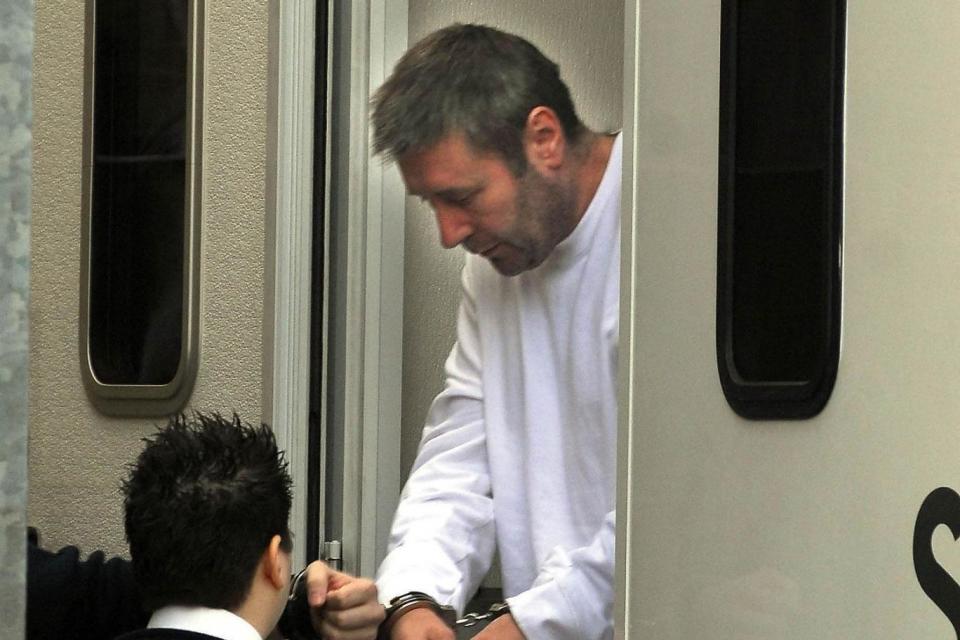John Worboys: Ministers abandon last-ditch bid to block the release of black cab rapist

Ministers today abandoned a last-ditch attempt to block the release of black cab rapist John Worboys after accepting that there were no legal grounds to keep him in prison.
Justice Secretary David Gauke had commissioned legal advice to see whether it would be possible to bring a judicial review of the Parole Board’s decision to free Worboys. But the minister announced today in Parliament that he would not be going ahead with the challenge after being told that the board had followed the correct processes.
Mr Gauke’s decision means that Worboys, who was convicted in 2009 of 19 offences, including one rape and five sexual assaults, against 12 of his female passengers, is likely to be freed within the next few weeks. The only potential obstacle is a separate attempt by victims to obtain a judicial review. A crowdfunding campaign has raised about £18,000. Mr Gauke’s decision does not stop them going ahead.
The Justice Secretary has asked for the tightest possible licence conditions to be imposed on Worboys, 60, once he is freed. He has also asked the Parole Board to consider banning the rapist, who lived in Hackney, from London

Mr Gauke told MPs: “I will not bring a legal challenge to the Parole Board’s decision unless there is a reasonable prospect of success. The bar for a successful judicial review is very high.
“Having taken on considered and expert legal advice, I have decided it would not be appropriate for me as Secretary of State to proceed with such a case. I cannot go into details of legal advice, not least because victims are bringing their own case and I would not want to prejudice that in any way.”
He said Worboys would not be freed “until his licensing conditions have been finalised and victims in the Victim Contact Scheme have had a chance to have their say to the Parole Board”.

Mr Gauke said there would be a shake-up of the way the independent board takes such decisions and of how they are communicated. He said the case “has made clear to me that there are some aspects of the Parole Board decision-making process which need to be examined and improved” and said a review into the board will “include not just transparency of decision-making but also whether and in what circumstances outcomes can be challenged”.
Mr Gauke has the final decision about the date on which Worboys will be freed. A decision to move him outside the capital , where he is expected to be released, could also still be taken. Yesterday Mayor Sadiq Khan joined London MPs to call for Worboys to be kept out of the city.
Richard Scorer, a lawyer at Slater and Gordon, which previously represented 11 of the victims in a civil case, said: “The victim judicial review is going forward and we urge everyone to support it and the crowdfunding efforts. It is crucial that the decision to release this manipulative, calculating and dangerous man can be considered by the courts as soon as possible. It is also imperative that the failure to prosecute more cases against Worboys is re-examined.
Under laws governing the release of prisoners subject to an indeterminate sentence, such as Worboys, the Parole Board must be satisfied the offender no longer poses a threat to the public.
Decisions are taken in secret by a panel of experts and ministers have no right to overturn them. The only way to block the release of a prisoner is to seek a judicial review which would examine whether the processes followed by the board in reaching its verdict were correct. If they were found not to have been then a new hearing would take place.
The Parole Board chairman, Professor Nick Hardwick, has said that he has great sympathy for the victims but that the “rightful abhorrence” for Worboys’ crimes should not be allowed to overturn “basic principles of justice”.
Police estimated that Worboys’ victims numbered more than 100. The Crown Prosecution Service considered 93 cases before his trial and several afterwards. In most, prosecutors decided there was insufficient evidence. One reason was that police had failed to investigate him adequately when suspicions emerged.

 Yahoo News
Yahoo News 
